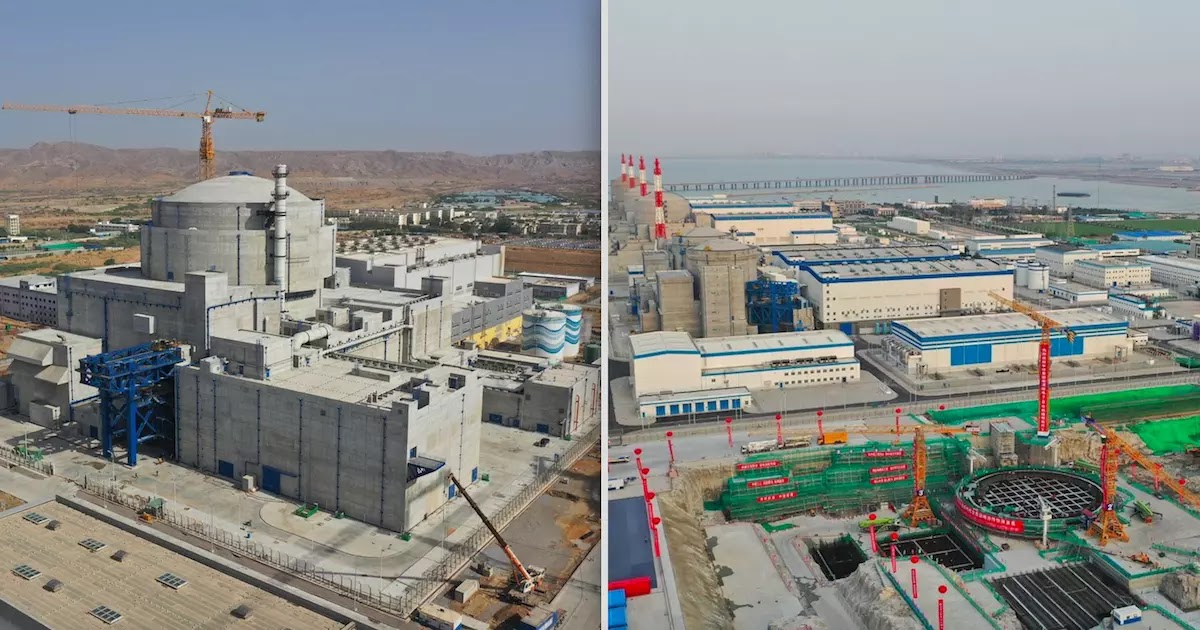
It has been revealed that China plans to build 150 nuclear reactors over the next 15 years as a way of powering the nation and reducing its carbon footprint.
Over the past 35 years, the entire rest of the world has built fewer than 150 reactors showing the sheer scale of China's ambition, which is expected to cost upwards of $440 billion, making China the world's largest nuclear energy producing state, surpassing the US.
The plans are part of a climate strategy written up after the COP26 summit in Glasgow, Scotland, which sought to reduce global carbon emissions which are responsible for global warming and climate change. In total it is imagined that the nuclear plants will halt 1.5 billion tons of annual carbon emissions, more than what's generated by the U.K., Spain, France and Germany combined. It total, 200 gigawatts should be produced annually by 2035, enough to provide power to 12 cities the size of Beijing.
David Fishman, an energy consultant with The Lantau Group, said of the project:
"Nuclear is the one energy source that came out of this looking like a champion. It generated the whole time, it was clean, the price didn't change. If the case for nuclear power wasn't already strong, it's a lot stronger now."
The move comes alongside a climate crisis and an energy crisis, made worse by the war in Ukraine, and a sharp increase in the cost of oil.
At present China is producing more pollution than many other major economies but its plans to eradicate coal-fired power stations by 2060 and utilising the new nuclear plants should go a considerable way to ending global greenhouse gases. It will also seek to create more green energy utilising wind, solar and thermal energy production.
Due to the fact that the loans will come from state-controlled banks it is estimated that Chinese nuclear production will cost around a third of what it would cost in Europe or the US.
While many are encouraged by the move towards cutting carbon any environmental campaigners say nuclear power is equally dangerous, as evidenced by Chernobyl and Fukushima, and that the nuclear waste will pose a hazard for centuries to come.
[Based on reporting by: Bloomberg]
















COMMENTS